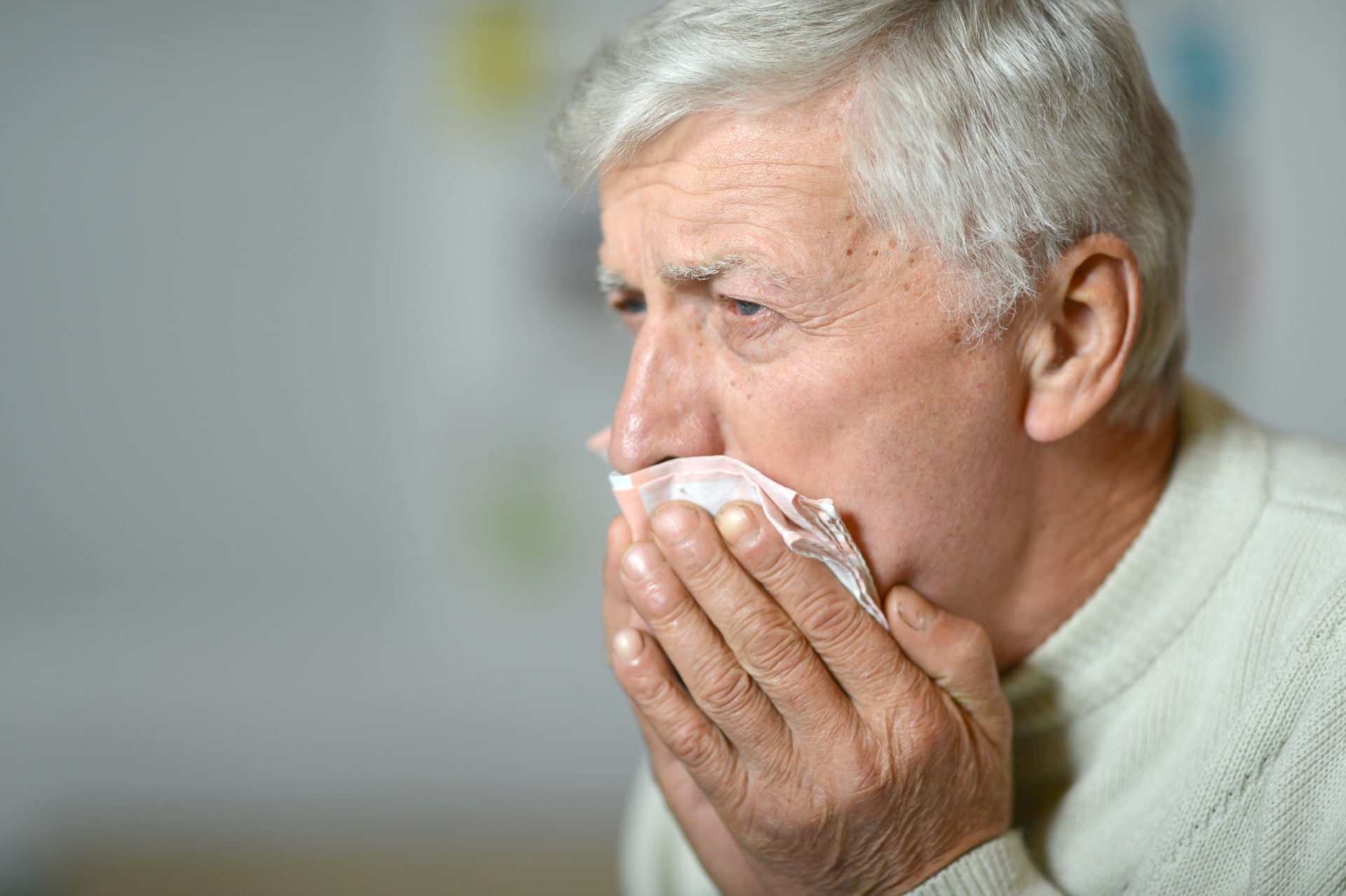A cough is one of the most common symptoms for people living with Pulmonary Fibrosis (PF). A persistent cough can be debilitating and distressing and can have a flow on effect for your daily activities, energy, appetite, and pain and anxiety levels.
Knowing how to manage and treat your cough, as well as recognise common triggers, can help you reduce the impact this has on your day-to-day life.
A cough can vary from person to person and could be dry or moist. If your cough is moist, your phlegm should be clear or white in colour. If your phlegm becomes yellow, green or bloody, it is important you see your health professional as soon as possible.
What causes cough?
It is important to communicate to your health professional how often you are coughing and what triggers your cough, which will help them adapt treatment to address your needs.
Causes include:
- Scarring of the lung tissue caused by your lung condition
- An exacerbation or flare-up
- Chest infections
- Gastro-oesophageal reflux disease, or heartburn
- Hayfever, sinusitis, or post-nasal drip
- Heart disease
- Use of Angiotensin-converting Enzyme (ACE) inhibitor medications to treat high blood pressure or kidney disease
A cough can also be triggered by cough-reflex sensitivity, which is when there is an overactive connection between the brain and the lungs that signals a cough. This can be triggered by exposure to certain things in your environment, including:
- Smoke
- Fumes
- Cold or dry air
- Perfumes
- Talking a lot
- Eating
- Throat irritation
Treatments for cough
Treatment options will vary depending on your health. A doctor might prescribe specific cough-suppressant medication reduce your cough reflex, however it is also important to treat the possible underlying causes of your cough. As well as treatments prescribed by your healthcare team, there are some things you can do to help manage a persistent cough and help you feel more in control, including:
- Sip water frequently during the day. Try sipping water every 15-30 minutes to keep your throat moist
- Avoid over coughing every time you have a tickle – try swallowing instead
- Avoid caffeine and alcohol, which can dry out your throat
- Try steam inhalation for 10-15 minutes, or as long as you can tolerate every day
- Breathe through your nose to reduce dry air contacting your throat
- Try sucking on non-medicated throat lozenges or honey
- Avoid speaking for long periods of time or take breaks as needed
- Avoid cough triggers such as cigarette smoke or strong perfume
- Maintain regular exercise
- Quit smoking
For more information about cough in PF, view our cough and breathlessness booklet.

